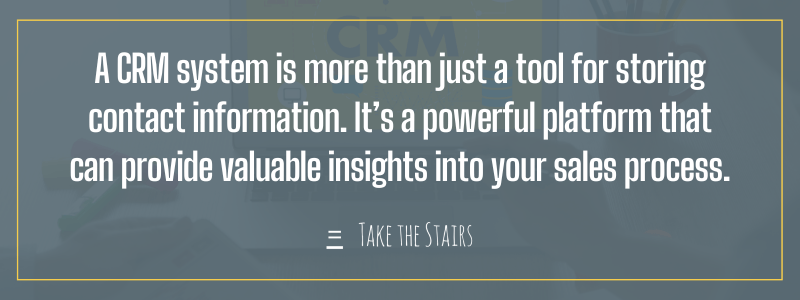Navigating the world of construction lead services can be challenging, especially when your goal is to stand out in the crowded marketplace. Research shows 68% of B2B businesses struggle with lead generation.
Whether you’re seeking residential construction leads or expanding into larger building projects, understanding the best ways to get new construction project leads is crucial for your business growth. A qualified lead generation services company can help you attain this goal.
In this comprehensive guide, we delve into the intricacies of the lead generation process for construction companies, providing practical strategies and insights to help you attract and secure valuable leads. We understand that getting construction leads is more than just a numbers game; it’s about finding qualified lead prospects that align with your services and capabilities.
This guide will cover
- how to get qualified leads for construction projects
- how to optimize your lead generation construction strategies
- how to generate commercial construction leads and residential construction leads.
If you’re ready to elevate your construction company and lead generation websites, read on to discover the best practices in construction marketing and lead generation.
Key takeaways
- Specialize your construction services to stand out and be memorable to potential customers.
- Define your buyer personas to target the right audience and tailor your marketing efforts accordingly.
- Develop a strong online presence through a professional website and valuable content to showcase your expertise.
- Build lead lists using data intelligence tools to identify quality prospects and improve targeting.
- Regularly measure campaign success, set goals, and make adjustments to optimize your lead generation strategies.
Specialize your construction services
In the competitive landscape of the construction industry, specialization can be a game-changer. Rather than promoting your business as a jack-of-all-trades, it’s crucial to highlight your unique strengths and areas of expertise. This approach not only helps to differentiate your company from the competition but also makes it more memorable in the minds of potential clients.
When a client is looking to hire a construction crew, they’re not just looking for any company; they’re looking for a company that can effectively and efficiently handle their specific construction project. You can position your company as the go-to expert for a particular group of services or projects by providing specialized construction services. This can significantly increase your chances of being top-of-mind when a client needs a service that you specialize in.
However, claiming to be a specialist isn’t enough. You need to back up your claims with tangible evidence. This could involve developing specialized practices, investing in specific equipment, gaining relevant certifications, and more. By doing so, you validate your claims of specialization and demonstrate your commitment to delivering high-quality services.
In essence, developing specialized construction services is more than narrowing your focus. It’s about intentionally defining what you’re great at, demonstrating how your business can effectively complete projects, and positioning yourself as the company that general contractors think of when they need a specific service.
This strategic approach can significantly enhance your lead generation efforts and ultimately contribute to your company’s success.
Differentiate your construction services
Differentiating your construction services is a strategic move that can significantly enhance your company’s market position. It’s about showcasing what sets your company apart from the competition and why prospective clients should choose you over others. Here’s how you can approach this:

Identify your value differentiators
What makes your construction services unique? It could be your innovative approach to project management, commitment to sustainability, use of cutting-edge technology, or exceptional customer service. Whatever it is, make sure your value differentiators something that your competitors can’t easily replicate.
Highlight your expertise and experience
Your team’s skills and experience are valuable assets that can help differentiate your services. If you’ve worked on high-profile projects or have expertise in a specific type of construction, highlight these in your marketing materials.
Offer value-added services
Consider offering services beyond the standard, run-of-the-mill construction work. This could include pre-construction consulting, design assistance, or post-construction maintenance. These additional services can provide extra value to clients and set your company apart.
Focus on quality
In an industry where cutting corners can lead to disastrous results, a commitment to quality can be a powerful differentiator. Make sure your clients know that you prioritize quality in every aspect of your work, from the materials you use to the craftsmanship of your team.
Build strong relationships
In the construction industry, relationships matter. By building strong relationships with clients, suppliers, and subcontractors, you can differentiate your company based on your reputation for reliability and trustworthiness.
Remember, differentiating your construction services isn’t just about being different; it’s about being better. By focusing on what makes your company unique and valuable to clients, you can stand out in the crowded construction market and attract more high-quality leads.
Define your buyer personas
Defining your buyer personas is integral to understanding and effectively reaching your ideal customers in the construction industry. A buyer persona is essentially a semi-fictional representation of your ideal customer, crafted based on market research and real data about your existing customers.
Begin by identifying the basic demographics of your ideal customers, such as their age, location, job title, and industry. For instance, you might start identifying an ideal buyer persona as a Senior Construction Project Manager at a construction company that has at least 50 employees and is located and licensed to do business in Tennessee, Georgia, or Kentucky.
Next, delve into understanding paying customers and their needs and challenges. Are they typically involved in residential or commercial construction projects? Do they struggle with finding reliable subcontractors or implementing sustainable building practices in home improvement projects? You can tailor your services to provide solutions by understanding these needs and challenges.
Also, consider their professional goals and values. Perhaps they aim to complete projects on time and under budget, or they value sustainability and innovation highly. Aligning your services with these goals and values can position your company as an attractive choice.
It’s also crucial to understand their decision-making process. Do they rely heavily on recommendations from their network, or do they conduct extensive research before deciding which construction company to hire? This insight can help you target your marketing efforts more effectively.
Finally, identify their preferred communication channels. Knowing whether they prefer email, phone calls, in-person meetings, or staying informed through social media platforms or industry publications can help you reach them on the platforms they use most so you can develop a strategy on how best to communicate to them in the way most prefer.
It’s okay to start with an educated guess, just make sure you evaluate the data (engagement, followers, click-through rate, impressions, etc. ) that help you understand if your focus platforms are working. Be ready to pivot if they don’t.
In essence, defining your buyer personas allows you to gain a deeper understanding of your ideal customers. This knowledge can inform your marketing strategies, service offerings, and even your internal operations, leading to more effective construction lead services and increased customer satisfaction.
Broaden your sales criteria
Sometimes, in the world of construction lead services, having a fixed ideal customer in mind isn’t enough. It’s like fishing in a vast ocean with a small net. You might catch a few fish but think about the ones you’re missing. This is where having broader sales criteria comes into play.
Let’s bring this to life with some examples:
Suppose you’re a construction firm in Tennessee, looking to subcontract on commercial jobs. You’ve identified your perfect partner as a contractor with a Tennessee Commercial BC-B license, necessary for projects over $25,000. However, finding these licensed contractors isn’t always easy.
Instead of getting stuck on the license, broaden your horizon. Consider company size as a sign of who might have that license. Now you’ve got a bigger net. When advertising, speak to your readiness to handle commercial subcontractor work. The mention of this could pique the interest of the ideal partners lurking within that wider sales criteria.
Or perhaps you’re an electrical services company in Tennessee. You prefer local jobs, but you’re open to opportunities. You decide to cast your net a bit wider, into Alabama and Georgia, where laws favor those with Tennessee’s electrical licenses. Now, your sales criteria spans three states, and that opens up a whole new world of potential leads.
But don’t just widen your sales criteria for the sake of it. Make sure it resonates with the needs and ambitions of these potential leads. Let’s say you know that a construction project manager often works with residential contractors on big-ticket projects, say over $1 million. You also find out they like partners who appreciate sustainability and have a history of repeat business. You would want to reflect these aspects in your messaging to appeal to these prospects.
Broadening your sales criteria in this way helps you to reach out to more potential clients. But more importantly, it increases your chances of finding those high-quality leads – ones that match your buyer personas and have a high potential to convert. It’s about balancing specificity with flexibility in your construction lead services strategy. This way, you won’t miss out on those prospects that don’t fit perfectly into your buyer personas but could still be valuable assets for your business. With a wider net, you can catch more leads, build more relationships, and ultimately, drive more growth.
Standardize your design with style guidelines
 Standardizing your design with style guidelines is like creating a unique identity for your construction business. Think of it as your brand’s fingerprint – it’s what makes your company instantly recognizable. These guidelines cover everything from your brand colors and typography to how your logo is used.
Standardizing your design with style guidelines is like creating a unique identity for your construction business. Think of it as your brand’s fingerprint – it’s what makes your company instantly recognizable. These guidelines cover everything from your brand colors and typography to how your logo is used.
Check out the style guide from our website, Take the Stairs (TTS), for instance. We clearly outlined our brand elements, including primary and secondary colors, logo usage, and typography. This ensures the brand is consistently represented and easily identifiable wherever it appears.
Now, why is this important for your construction lead services? A consistent and professional brand image can set you apart from the competition. It shows potential clients that you’re not just any construction lead generation company – you’re a well-established, reliable business that pays attention to detail.
So, if you haven’t already, it’s worth investing some time in creating a style guide for your company. It might seem like a bit of work upfront, but the payoff in terms of brand recognition and trust can be significant. Plus, it’ll give all your marketing materials a cohesive, professional look that will impress.
Launch a website
Launching a website is a game-changer for your construction business. Think of it as your company’s digital headquarters – a one-stop shop where potential clients can learn everything they need to know about your services.
Your website is more than just an online brochure. It’s a platform where you can showcase your past and upcoming projects, highlight your expertise, and explain how you can help clients with their construction needs. It’s also a place where you can address common questions and concerns your clients might have about the operations of your construction services. By providing this information, you’re establishing your credibility and helping your clients make informed decisions.
One effective way to engage visitors is through landing pages. These are specific pages designed to answer your audience’s most pressing questions. For example, you could have a landing page to explain the process of a home renovation or a page that provides tips on how to choose a reliable contractor. By providing valuable information, you’re positioning your own construction company’s website as a trusted resource in the construction industry.
And if you’re skeptical about the effectiveness of a website, remember – you’re on one right now. Websites work. They’re essential for reaching potential clients, generating leads, and growing your business. So if you haven’t launched your website yet, now’s the time to start.
Create informational content
Generating valuable leads in the construction industry requires more than just raw expertise—it requires sharing that expertise with the world. One of the most effective ways to do this is by creating informational content that provides valuable insights and showcases your knowledge.
Consider crafting insightful blog posts, how-to guides, or even videos on construction-related topics. Your content should answer common questions, provide solutions to prevalent issues, and give potential clients a glimpse of the value you bring to the table. For instance, a blog post could cover industry trends or offer project management tips. A how-to guide could walk a reader through the process of selecting the right construction materials, while a video could give viewers a behind-the-scenes look at your latest project or a walkthrough of a recently completed building.
Remember, you’re not giving away trade secrets—instead, you’re positioning your company as a thought leader and building trust with potential clients. By sharing your expertise in a way that is helpful and informative, you create numerous touchpoints that can attract potential leads and open the door to deeper conversations. Plus, with a clear and compelling call-to-action at the end of your content, you’re inviting readers to engage further—whether that’s by signing up for a newsletter, requesting a consultation, or simply reaching out for more information. This turns passive readers into active leads, accelerating your lead generation efforts.
By creating and sharing informational content, you are casting a wide net to catch the attention of potential leads. It’s an investment of time and resources that can yield significant returns, helping to grow your business and cement your reputation as an expert in the construction industry.
Go to conferences where your prospects will be
In the world of construction lead services, one strategy often outperforms the rest: the power of direct, face-to-face interaction. Smaller construction companies, particularly those operating with limited budgets, can significantly benefit from this approach.
Attending events and conferences where your prospects will be present can be a particularly fruitful investment. Consider this: investing a few hundred dollars to send your top salesperson to an event can lead to direct interactions with potential clients. If just one of these conversations turns into a project, the return on your investment could be substantial.
Unlike other marketing strategies that reach out to customers individually, events allow you to demonstrate your services and projects to many prospects simultaneously. You can showcase your work, answer questions, and even close deals on the spot. Plus, events also serve as a platform for raising brand awareness, building your reputation in the industry, and conducting competitive analysis.
Furthermore, these gatherings foster relationships not just with potential clients, but also with other stakeholders in your industry, such as suppliers, contractors, and partners. These relationships can open doors for collaborations, referrals, and further business growth in the long run.
Despite the upfront costs associated with attending these events, they can prove more cost effective than traditional marketing strategies, given their potential for immediate conversions and the strong relationships they allow you to build.
Always remember, though, the goal at these events isn’t just to pitch your services. It’s about being helpful, engaging, and showcasing your expertise. The more you focus on offering value and showing genuine interest in your prospects’ needs, the more opportunities you’ll have to introduce your services naturally. This approach can lead to more meaningful connections and, ultimately, more leads for your construction business.
Build lead lists
Building lead lists is a crucial step in your lead generation strategy. These lists are essentially a collection of potential clients who have shown interest in your construction services or fit the profile of your ideal customer.
In today’s digital age, there are numerous data intelligence tools available that can help you gather quality information about your target audience. These tools can provide insights about people based on their job titles, industries, and more. For example, if you’re targeting project managers in the commercial construction industry, these tools can help you find individuals who fit this profile.
Once you have this information, you can start building your audience. This involves reaching out to these potential leads through various marketing strategies, such as email marketing, social media advertising, or even direct mail. The goal of digital marketing strategy is to engage these leads, provide them with valuable information about your services, and ultimately, convert those leads into clients.
Remember, building a lead list is not a one-time task. It’s an ongoing process that requires regular updates and refinement. As your business grows and evolves, so should your lead list. By continuously adding new leads and removing those that are no longer relevant, you can ensure that your marketing efforts are always targeted and effective.
Utilize a CRM system

Utilizing a Customer Relationship Management (CRM) system can be a game-changer for your construction business. A CRM system is more than just a tool for storing contact information. It’s a powerful platform that can provide valuable insights into your sales process.
One of the key benefits of a CRM system is its analytical capabilities. It allows you to track every interaction with your leads, from the initial contact to the final sale to all correspondence through the customer lifecycle. This means you can see at a glance which sales and marketing departments’ strategies are working, which ones aren’t, and where there might be opportunities for improvement.
For example, you can use your CRM system to track the progress of leads from your lead list. By monitoring which leads end up becoming clients, you’ve given the company the ability to establish the ever-coveted “cost per conversion” metric for your campaigns.
This can help you make more informed decisions about where to invest your marketing budget.
Remember, a lead list is only as effective as your ability to use it. By integrating your lead list with your CRM system, you can ensure that no potential client falls through the cracks. Plus, you’ll have all the data you need to refine and improve your lead generation strategy continually. So if you’re not already using a CRM system to manage construction sales, it’s definitely worth considering.
Lean into matched audience advertising
Matched audience advertising is a powerful tool that allows you to focus your advertising efforts on a specific group of people – your targeted leads. Social ad platforms like LinkedIn Campaign Manager and Meta Business Suite match your leads with profiles in their database by uploading your lead list and matching it against their user database.
Take a moment to realize how special this is.
Traditional advertising methods waste countless dollars advertising your business to people who will never need construction services, matched advertising only sends your impressions to the people you want to reach.
This means your ads are shown only to those who you decided are most likely to be interested in your services. This targeted approach increases your ads’ effectiveness and saves you money by avoiding unnecessary exposure.
In this way, you don’t only advertise to the people you want to. You save a huge amount of money compared to using their portal’s audience targeting.
Remember, an ad platform’s motivation is to sell ads. They don’t care if they are selling bad impressions as long as they give you enough to keep on the platform.
If your construction business needs to make your ad spending more efficient, consider matched audience advertising.
Set campaign goals
Measuring the success of your advertising campaigns is crucial to understanding their effectiveness.
You can gain valuable insights into your campaign’s performance by regularly reviewing key performance indicators (KPIs), such as conversion rates, click-through rates, and cost per lead.
This data allows you to identify what’s working, what’s not, and make necessary adjustments to improve your campaign’s success.
Replace ads regularly
Another important aspect of successful advertising is keeping your ads fresh.
Ad burnout is a real thing – just think about how you feel when you see the same TV ad over and over again.
Our agency feels if an ad has been shown to the same person more than 7-9 times on average, it’s probably time for a new concept.
Keeping your ads fresh and engaging can help maintain interest and improve effectiveness.
Set goals
A fairly obvious one, but it’s still worth mentioning because of its importance. Many campaigns just focus on “getting more business.” If you’re starting a new campaign, it’s okay if your goals are within a range, but they still need to be built upon a foundation of tangible, achievable numbers.
For instance, if ABC Construction needs to convert leads at 20% of their average project fee of $26k to remain profitable, they should aim to spend no more than $5,200 per conversion.
Clear goals like this can provide a benchmark for success and guide your campaign strategies as you track and measure your progress.
Take time to evaluate your results
Advertising is not a “set it and forget it” activity.
It requires regular evaluation and adjustment. By taking the time to analyze your results, you can gain valuable insights into what’s working and what’s not.
This could involve looking at which ads perform best, which target audiences are most responsive, or which messages resonate most with your audience. This information can then be used to refine your strategies and improve your future campaigns.
Make sure you’re asking questions like…
- Which ads are working?
- Which landing pages are converting?
- What are people saying in the comments?
- Which social media channels are delivering the best cost per sale?
When you take the time to evaluate your results, you’ll capture valuable information, like the learned lessons on what concepts and campaigns are working, what either needs to be scraped or refined and more.
Scale gradually
 Scaling your lead generation efforts should gradually align with your company’s growth and capacity.
Scaling your lead generation efforts should gradually align with your company’s growth and capacity.
If you try to scale too quickly, you may become overwhelmed and unable to manage your leads effectively. On the other hand, if you scale too slowly, you may miss out on some potential leads and opportunities.
In the world of social advertising, you can usually hit the pause button on your campaigns when you’re overwhelmed, don’t forget this.
Make sure your prospects have a bad experience because your sales team is overwhelmed.
The key is to find a balance – increasing your lead generation efforts in a way that supports your company’s growth without overextending your resources.
Develop new targets or specialty services
In the ever-evolving construction industry, it’s important to reassess your targets and services continually. As market trends shift and new opportunities arise, there may be new target audiences to consider or specialty services that could set your business apart.
Developing new targets involves identifying potential clients who could benefit from your services. This could be a new industry sector, a different business size, or even a geographical area you haven’t previously targeted. Research these potential targets thoroughly to understand their needs and how your services could meet them.
Offering specialty services can help differentiate your business in a crowded market. This could involve focusing on a niche area of construction, as we mentioned earlier, obtaining specialized certifications, or investing in unique equipment. By offering services that few others do, you can position your contracting business as a go-to provider in that area.
Remember, developing new targets or specialty services aims to drive growth and stay competitive. So, always ensure these developments align with your overall business strategy and capabilities.
Learn more about how to build the foundation for your construction leads
Building a solid foundation for your construction firm to generate leads is the first step toward achieving your business goals.
Understanding your target audience, developing a strong online presence, creating valuable content, leveraging SEO, and using lead-generation tools are all crucial components of a successful lead-generation strategy. But how do you put all these pieces together?
We’re here to help. Take the Stairs is a Nashville-based digital marketing agency that specializes in construction lead services. We can guide you through the process, providing the tools and knowledge you need to attract high-quality leads and grow your business.
Don’t leave your success to chance. Contact us today to learn more about how to build the foundation for your construction leads today.

